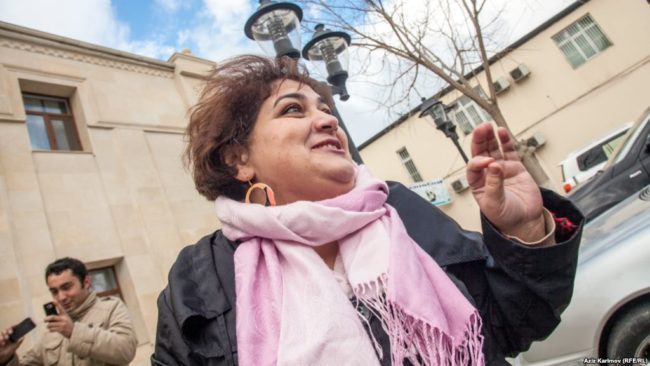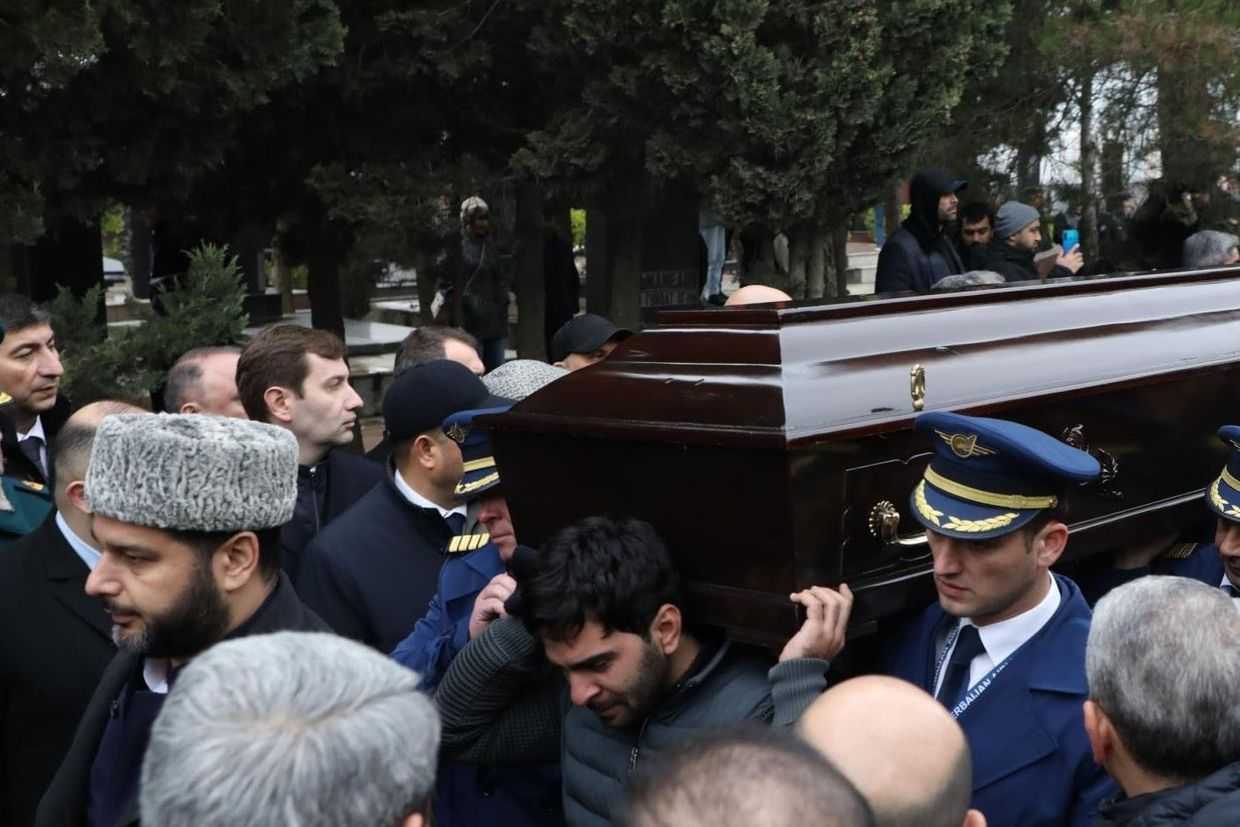

![]() Khadija Ismayilova is not only Azerbaijan’s most famous journalist, but the country’s most famous woman. Her loud and persistent investigations of corrupt dealings in the country, and her publications, in which she names president Ilham Aliyev, members of his family, and other high-ranking officials in connection to those dealings, have not endeared her to the authorities.
Khadija Ismayilova is not only Azerbaijan’s most famous journalist, but the country’s most famous woman. Her loud and persistent investigations of corrupt dealings in the country, and her publications, in which she names president Ilham Aliyev, members of his family, and other high-ranking officials in connection to those dealings, have not endeared her to the authorities.
An entire campaign was waged to discredit Ismayilova with the goal of, she supposes, forcing her to quit her investigations. When this didn’t stop her, the criminal proceedings began.
She was detained in December, 2014. In September, 2015, the Court of Grave Crimes in Baku found the journalist guilty and sentenced her to 7.5 years in prison for tax evasion and embezzlement.
An unprecedented number of international organisations and Western governments accused the Ismayilova case of being politically motivated, and called upon the Azerbaijani government to free her. Amnesty International and other organisations launched a massive campaign in support of Ismayilova. And on just 25 May 2016, the High Court of Azerbaijan changed her sentence from 7.5 years of imprisonment to conditional imprisonment. Yet Azerbaijani prisons still contain political prisoners. The human rights situation in this South Caucasian country is cause for acute concern. Human rights activists and journalists have long been sounding the alarm.
Khadija Ismayilova talked to us about her work and her situation.
In September of 2015 the courts found you guilty of embezzlement and tax evasion and sentenced you to 7.5 years of imprisonment. Why do you think such a case was brought against you?
All of my investigations were dedicated to this topic — the embezzlement committed by officials, to the ways they open offshore companies to avoid paying in-country taxes, or to hide their stolen earnings. I think that’s why they chose these particular accusations. They deliberated for a long time. After all, first they accused me of disclosing state secrets. Then they realised they’d screwed up with that idea. Then they began proceedings on charges of libel, but that case too was clearly pulled out of thin air, and the jail time would have been minimal. Then they accused me of pushing someone to suicide. The unsuccessful suicide later confessed that employees of the Ministry of National Security and the city prosecutor’s office forced him to slander me. I was originally arrested under this pretext, which was only later reconfigured into a financial charge.
Did you anticipate that the court’s verdict would truly lead to an actual prison sentence?
At the time of the verdict’s announcement I had already been in jail for nine months, in pretrial detention. Neither the imprisonment nor the verdict were a surprise to me. I had been awaiting my arrest a long time — the only question was how they would spin the tale. They ‘spun’ it quite poorly.
What, in your opinion, caused them to adjust the severity of your punishment, less than a year after your imprisonment?
The campaign which demanded my release was very effective. My colleagues came together and conducted investigations on my behalf, which I could not conduct from prison. International human rights organizations were very active. But most effective, I think, was the call to relieve the first lady from her post as UNESCO ambassador, since I was under arrest for investigating the companies and holdings of her family — the Azerbaijani president’s family. And our first family doesn’t like to lose their regalia.
If you had the opportunity, would you leave the country?
No. Unequivocally not. I lived for half a year in the USA, when I worked on the radio programme Voice of America in 2006. And I discovered that, despite the ease of everyday life, it was hard to be happy when my country was deep in shit. I tore up the contract ahead of time and returned home. Afterwards there were many offers to leave. I always refused. Even before my arrest, while I was out of the country on a routine trip, I was warned that upon my return I would be arrested. Nevertheless, I of course returned. I don’t just investigate — I also instruct my young colleagues in investigative journalism. Do you think I have the right to involve them in a risky business, if I myself flee? And then, to live with the knowledge that I ran away — it doesn’t matter what we call it, it’s still running away — would be much harder than life among all these problems.
How many human rights activists, journalists, activists, remain behind bars in this country? And are they all opponents of the current government?
I belong to a group that compiles the list of political prisoners. We have documented and confirmed 119 cases. Among them are 6 journalists and bloggers, two poets, five youth activists, and one human rights defender. The list also contains many religious activists, and hostages — meaning, relatives of politicians and journalists arrested by the government to put pressure upon their opponents.
How would you characterise the socio-political situation in Azerbaijan today: the state of civil society, and mass media in general, in both its official and independent forms?
Fear — this is the word that best characterises the situation in the country. Everyone lives in fear of losing their job, their freedom, the well-being of their family. Everyone lives under suspicion. Even sanctioned meetings are accompanied by arrests and repressions. There isn’t a single independent television or radio station, not a single independent or oppositional newspaper. There is only the internet. Civil society is forced into a state of illegality; the attempt to implement any independent initiative can be brought under the aegis of the Criminal Code. Our situation is likely familiar to you, as our authorities copy their oppressive laws from the Russian framework.
And yet we try to remain on our feet. We speak and we work. It’s pleasant to realise that our ranks are expanding. There is a whole galaxy of young colleagues, eager to study investigative journalism. A new generation of human rights activists has also emerged. Undeniably, we struggle, but we survive.
The article is a translation of a partner post written by Denis Abdullayev that first appeared in the journal Dosh. Translated by Aleksandra Burshteyn.








